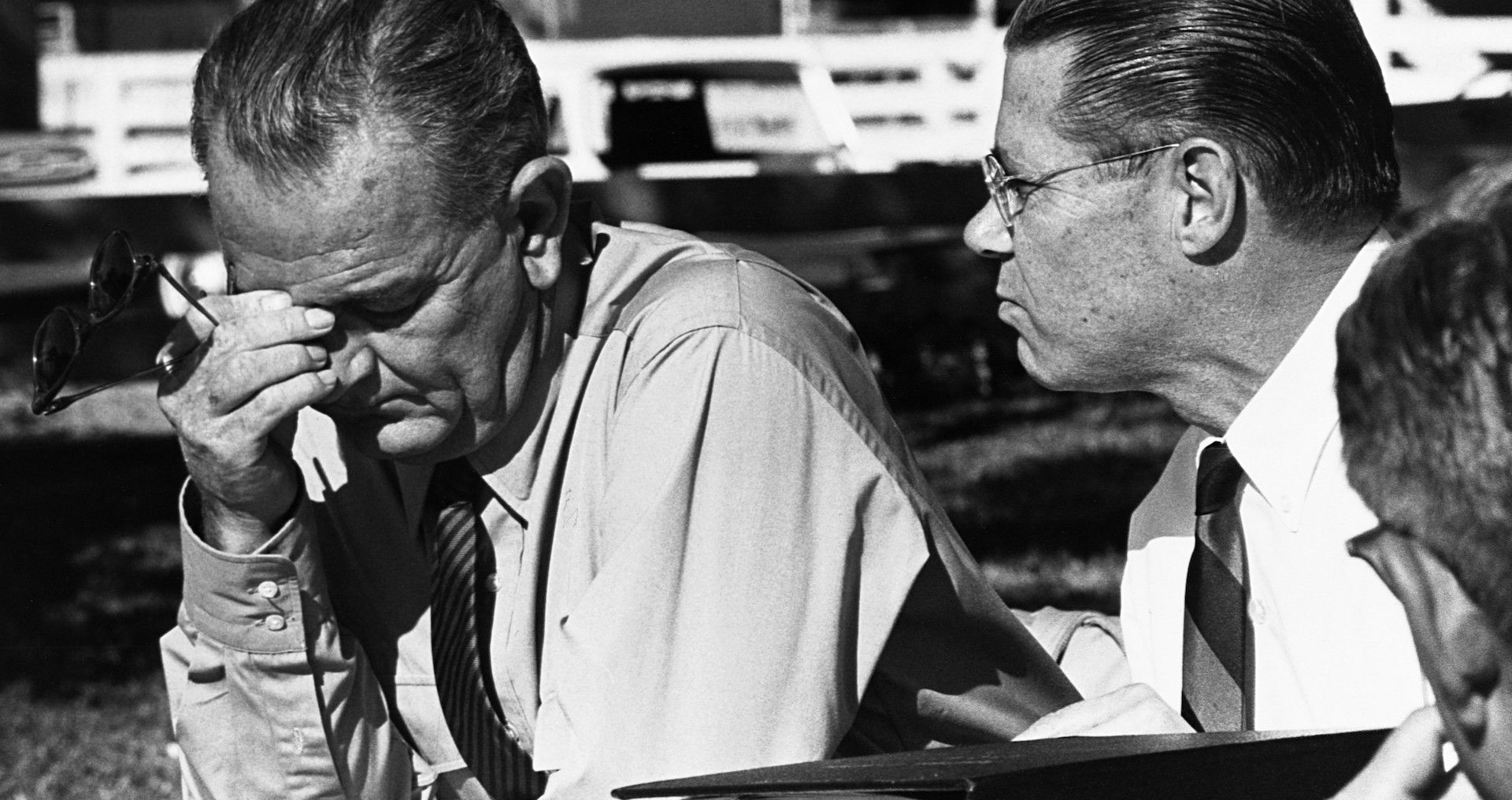Dereliction of Duty
Considering Lt. Gen. H.R. McMaster's recent appointment to the position of National Security Advisor, it is prudent to revisit his book Dereliction of Duty.

Considering Lt. Gen. H.R. McMaster's recent appointment to the position of National Security Advisor, it is prudent to revisit his book Dereliction of Duty. While examining many records declassified just before he began working on the book, McMaster argues that President Kennedy, President Johnson, and Secretary of Defense McNamara marginalized the Joint Chiefs of Staff. According to McMaster, The White House played the service chiefs against one another to keep them occupied, and ignored their advice.
Dereliction of Duty is the results of McMaster’s doctoral research come to full fruition; McMaster’s work examines many documents that became declassified immediately prior to its publication. The narrative is constructed through the examination and interpretation of four key decisions made early in the Johnson Administration: the August 1964 Tonkin Gulf Resolution; the February 1965 decision to conduct air strikes against North Vietnam; the March 1965 decision to introduce American ground troops into Vietnam; and the July 1965 decisions to introduce substantial US forces while not mobilizing the reserves.
In describing each decision, the author details the conflicting views and goals of President Johnson and his principal advisors, especially the Joint Chiefs of Staff. McMaster states that between 1963-66, LBJ regarded the Vietnam issue as an unwanted, secondary demand on resources that he wished to devote to enacting his Great Society domestic program. The President worried that increasing US support might lead China, or worse, the Soviet Union, into the war on the side of North Vietnam.
Through the cautious employment of minimal military means, President Johnson fought behind-the-scenes to bring about a condition favorable to both the interests of the US and the South Vietnamese. He also had political fears; the President was further worried that increasing US participation in the war would adversely affect his prospects for election and later reelection.
Working within these limits created the politico-military strategy for Vietnam that McMaster refers to as "graduated pressure". Secretary of Defense Robert McNamara and his "whiz kid" staff developed new concepts of warfighting, integrating technological and data processing advances to resolve the Vietnam problem, while rejecting military advice about which they knew or cared little (McNamara himself was a direct commission officer who left the military as a Lieutenant Colonel served directly under the Chief of Staff of the Air Force), and marginalizing the chiefs. However, the Chiefs were not without fault; while the strategies they developed were ignored and they were excluded from the senior planning process, they allowed themselves to be pacified with promises that would benefit their respective services.
McMaster incorporates a number of papers from the Historical Division of the Joint Secretariat, personal papers of Presidents Eisenhower, Kennedy, and Johnson, and primary source books from the key players from the inception of the Department of Defense, to the beginning of the Vietnam War, onwards.
The author presents a strong critique of two administrations that looked upon the professional military officers of the Joint Chiefs of Staff with disdain.
Despite the strong argument that the Kennedy and Johnson administrations marginalized the Joint Chiefs, had their advice been heeded, it is unclear whether or not the war effort would have been any more successful.
Brian Christopher Darling has served in the United States Army in Iraq, Afghanistan, and Qatar. He has master’s degrees in Liberal Studies and Public Service Leadership from Rutgers University and Thomas Edison State University, respectively. Mr. Darling is presently employed at Joint Force Headquarters, New Jersey National Guard. He has written for NCO Journal, The Best Defense at Foreign Policy, and Divergent Options, and can be found on Twitter @briancdarling
